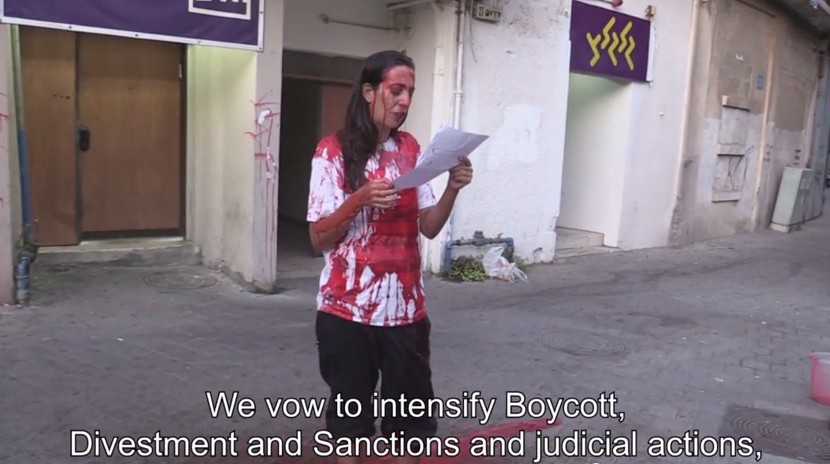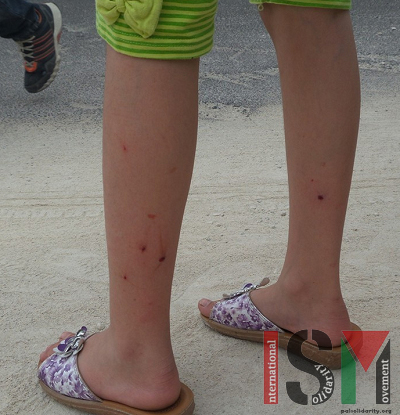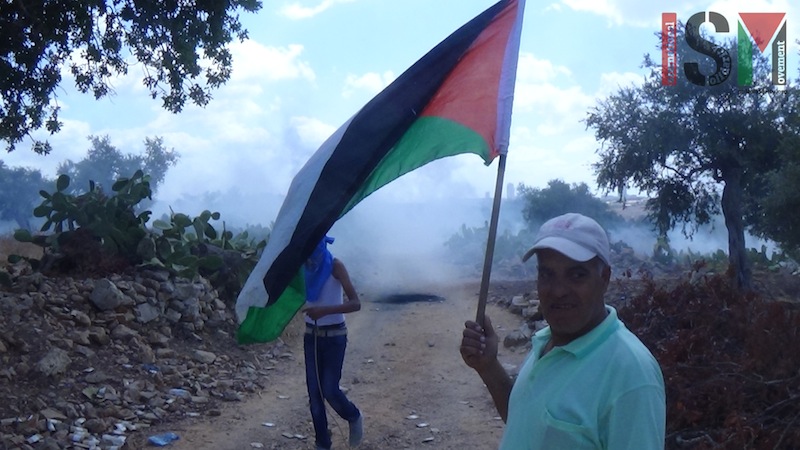Author: ISM Media
-
Jews Against Genocide: Blood bucket challenge at Yad Vashem
29th September 2014 | Jews Against Genocide | Occupied Palestine Jews Against Genocide held memorials for the victims of Israel’s recent genocidal attack on Gaza during which the speakers poured buckets of blood like liquid over themselves at Yad Vashem holocaust museum in Jerusalem, the US embassy in Tel Aviv, The Israeli Supreme court in Jerusalem,…
-
Violence and detention of children in Hebron
28th September 2014 | International Solidarity Movement, Khalil team | Hebron, Occupied Palestine This afternoon Israeli border police entered through Salaymeh checkpoint and fired 14 tear gas grenades and one stun grenade at children leaving school. Several teenagers threw stones towards the checkpoint and the soldiers began firing tear gas. An ISM activist present stated, “Four young girls were walking past the boys throwing…
-
Israeli forces shot tear gas and live ammunition inside the village of Ni’lin
28th September 2014 | International Solidarity Movement | Ni’lin, Occupied Palestine On Friday the 26th of September, Palestinians, Israelis and ISM activists demonstrated against the illegal settlements and apartheid wall that exist on land belonging to the Palestinian village of Ni’lin. The demonstration started with a peaceful march towards the apartheid wall. However, the unarmed protesters were…



